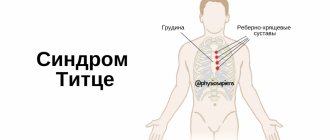Problems with concentration are a real scourge of modern society: more and more people complain of fatigue, distractibility and inability to concentrate on an important task. This can be either a consequence of multitasking and information overload, or a manifestation of a specific mental disorder - attention deficit hyperactivity disorder. “Theories and Practices” tried to figure out what ADHD is and how to cope with it.
Attention deficit hyperactivity disorder reveals all the weaknesses of psychiatry as a science: it is difficult to find a more controversial, vague and mysterious disorder.
Firstly, there is a high risk of misdiagnosis, and secondly, scientists are still arguing whether this is a disease at all or a variant of the norm - and if it is a disease, then can ADHD be considered a full-fledged diagnosis or is it just a set of symptoms, perhaps , not united by one reason. The history of research into attention deficit disorder (which received its current name only in the second half of the twentieth century) began in 1902, when pediatrician George Frederick Still described a group of impulsive, poor learning children and hypothesized that such behavior was not associated with developmental delays. The hypothesis was subsequently confirmed - although the doctor was unable to explain the reasons for this phenomenon. Twenty-five years later, another doctor, Charles Bradley, began prescribing benzedrine, an amphetamine-derived psychostimulant, to hyperactive children. The stimulants turned out to be very effective, although again, for a long time doctors could not understand the mechanism of their effect on patients. In 1970, American psychiatrist Conan Kornetsky first hypothesized that the disease may be associated with decreased levels of certain neurotransmitters in the brain and that such drugs help increase them. The American Psychiatric Association proposed the first methods for diagnosing the syndrome only in 1968, and in Russia they started talking about it only in the second half of the 1990s - and then without much enthusiasm.
A wary attitude towards this topic is understandable: the study of ADHD and the development of diagnostic criteria have been accompanied by scandals since the 1970s - the creators of the American reference book DSM-4 were accused of the fact that their descriptions of the disorder caused an entire epidemic of overdiagnosis in children and adolescents. Some doctors and parents chose medications as the path of least resistance: it was easier to stuff difficult children with medications than to cope with their characteristics using pedagogical methods. In addition, amphetamine-type drugs prescribed to active and uncontrollable children sometimes migrated into the arsenal of their housewife mothers: stimulants gave strength and helped them cope with housework (the most effective horror story on the topic of what the domestic abuse of such drugs leads to is the story of a mother main character in "Requiem for a Dream"). In addition, the criteria for diagnosing the disorder changed several times, which also caused a flurry of criticism. As a result, attention deficit disorder was greatly discredited and for some time fell into the list of “non-existent diseases”.
However, the experience of psychiatrists has shown that the problem, no matter how you classify it, still exists: a certain percentage of the population experiences difficulties associated with poor concentration, inability to self-organize, impulsiveness and hyperactivity. Often these characteristics persist into adulthood, and manifest themselves strongly enough to create serious problems for a person (especially an ambitious one) in school, at work and in his personal life. But usually the disorder is perceived by others and the patient himself not as a serious illness, but as a manifestation of personal shortcomings. Therefore, most adults with such a set of symptoms do not go to doctors, preferring to fight their “weak character” through strong-willed efforts.
What is attention deficit disorder in children?
Attention deficit disorder or ADD is a neurological and behavioral disorder that affects 5-20% of people around the world: both children and adults. Statistics in this case are biased, since in some countries scientists simply do not consider ADD worthy of treatment or academic study.
It is believed that 30% of children with this diagnosis outgrow or adapt to it in adulthood. Attention deficit disorder is more common among boys and is most often accompanied by hyperactivity. But it is more difficult to diagnose it in girls, since they are usually calmer and more balanced.
Contrary to popular belief, children with ADD do not have low intelligence, however, it is much more difficult for them to realize their potential without the use of proper correction methods.
What life is like for someone with ADHD
Attention deficit disorder causes difficulties for patients even at school: a teenager with this diagnosis, even if he has a high IQ, finds it difficult to learn material and communicate with peers and teachers. A person with ADHD can immerse himself in a topic that is subjectively interesting to him (however, as a rule, not for long - such people are prone to frequent changes of priorities and hobbies) and show brilliant abilities, but it is difficult for him to perform even simple routine work. At the same time, he is poor at planning, and with a high level of impulsiveness, at foreseeing even the immediate consequences of his actions. If all this is also combined with hyperactivity, such a teenager turns into a school teacher’s nightmare - he will get bad grades in “boring” subjects, surprise others with impulsive antics, disrupt order and sometimes ignore social conventions (since it will be difficult for him to focus on expectations and requirements of others).
Previously, it was believed that the disorder would “dissolve” on its own with age, but according to recent data, approximately 60% of children suffering from ADHD continue to exhibit symptoms of the disease into adulthood. An employee who is unable to sit through the end of a meeting and ignores important instructions, a talented specialist who misses important deadlines by suddenly getting distracted by some personal project, an “irresponsible” partner who is unable to organize his home life or suddenly blows a lot of money on some strange whim. - all of them may not just be weak-willed slobs, but people suffering from a mental disorder.
Is ADD a problem?
Attention deficit disorder began to be studied at the end of the 19th century, however, most people around the world to this day associate its symptoms with gaps in education or banal laziness. Therefore, most often children with ADD are influenced exclusively by pedagogical methods, without realizing that what is happening to the child is actually connected with dysfunction of the nervous system.
Indeed, at first glance, attention deficit disorder does not seem to be a serious problem, however, already in older preschool age, the child begins to have problems with social adaptation in kindergarten. He is restless and absent-minded, cannot concentrate on one type of activity for more than 3-5 minutes, while his peers are able to do all 10-15.
At school, the problem gets worse - it is difficult for the child to sit through the lesson, he has difficulty perceiving new information and cannot keep up with the pace of learning of other children. If he fails to become a positive statistic and outgrows his ADD symptoms, he may be susceptible to:
- difficulties with assimilation of information;
- decreased motivation in studies, complete ignorance of those subjects that are most difficult for him;
- low self-esteem, lack of self-confidence, as it will actually lag behind classmates in studies;
- increased anxiety, which will replace excessive physical activity;
- the occurrence of tics - repeated muscle twitching;
- depression, which can manifest itself in sleep disturbances, melancholy and indifference to traditional children's entertainment.
In adult life, attention deficit disorder manifests itself somewhat more restrained, because a person has largely adapted to the characteristics of his psyche. People with ADD often experience the following symptoms:
- instability of attention - it is difficult for them to carry out everyday activities (pay bills on time, take medications, do cleaning, etc.), at the same time, they concentrate well on new information that interests them (technology, video games, pressing social problems);
- lack of self-control - they tend to speak first and then think, they are impulsive, which often becomes the cause of conflicts with other people;
- disorganization, inability to long-term planning;
- absent-mindedness, inability to abstract from irritating factors while performing specific work.
As you can see, attention deficit disorder is much more serious than classic age-related crises. First of all, it requires diagnosis by a specialist and determination of appropriate correction methods: pedagogical and medicinal.
Treatment of absent-mindedness
Based on the results of laboratory diagnostics, an endocrinologist will determine the presence or absence of endocrine diseases, deficiencies, and imbalances. The doctor will definitely prescribe you a course of dietary supplements, and, if necessary, hormonal and other medications. Complaints and research results can serve as a reason to refer the patient to specialized specialists: neurologist, cardiologist, psychotherapist, etc.
The person will also receive recommendations from the doctor related to nutrition, sleep and activity patterns. In order for the brain to function fully, it is necessary to eat a varied diet, drink enough water, and sleep soundly at a certain time. Our doctors are experienced specialists in normalizing the rhythm of life. By following the advice of endocrinologists at the Marina Ryabus clinic, you will get rid of problems associated with forgetfulness and inattention.
Causes of attention deficit disorder
Despite a century-long history of observations, attention deficit disorder is still not well understood by scientists. Science does not yet know the exact reasons for its development in children. However, scientists put forward a number of theories that one way or another explain the occurrence of this disease. Here are the main causes of ADD:
- heredity - observational statistics have proven that the likelihood of the syndrome in children whose parents also had a history of it is several times higher;
- complex course of infectious diseases and other pathologies during pregnancy;
- abuse of alcohol, nicotine and caffeine during pregnancy can lead to irreversible changes in the fetal brain;
- premature birth;
- Rh conflict between the blood of mother and child;
- birth injuries, as well as head injuries and severe infectious diseases in a child in early infancy.
Some experts add other factors to this list:
- disorders of the thyroid gland;
- excessive consumption of sugar and foods with harmful food additives;
- lead poisoning;
- stressful living conditions (frequent moves, parental divorce);
- Child's passion for gadgets and TV.
How does attention deficit disorder manifest?
Classic symptoms of attention deficit disorder are most pronounced between 5 and 12 years of age. These are attention disorders, hyperactivity and impulsivity. At an earlier age it is extremely difficult to assess them. However, there are other signs of ADD that allow a child to be classified as at risk from the cradle:
- the baby began to hold his head up, roll over on his side or stomach earlier than expected;
- does not know how to fall asleep on his own, throws tantrums before bed;
- sleep is accompanied by frequent awakenings, and its duration and frequency are below the norm for age;
- short-term and shallow interest in toys;
- frequent digestive disorders;
- regular manifestations of allergies, skin rashes.
Children with such symptoms cause parents a lot of trouble, but the long-awaited relief will not come soon. Once they reach 3 years of age, they will have to deal with the key manifestations of attention deficit disorder.
Attention impairment is the inability to concentrate on a task for a long time. Concentration is only enough for a short period of time, and then the same amount of time is required to restore the resource. Even at the moment of being immersed in a task, the child is not able to separate the main from the secondary, ignores details, and cannot plan the sequence of actions. He is distracted by extraneous sounds and the presence of other children.
Hyperactivity is an excessive need for physical activity. Hyperactive children also tend to unconsciously make inappropriate movements: spinning their hands, feet, kicking their legs against each other or on a table, chair, etc.
Impulsivity – characterized by a lack of patience, frequent mood swings, and an inability to follow complex instructions. A child with ADD is only interested in his desires, he acts thoughtlessly, ignoring social norms of behavior. On the way to the goal, he stops at nothing: he can disrupt a lesson and even hit another child.
In addition to the main symptoms, there are other features of ADD:
- problems communicating with peers - the child is overly intrusive, emotional and even aggressive;
- difficulties in learning accompany even children with a high level of intelligence;
- weak emotional intelligence - the inability to adequately assess the feelings of people around you and predict their reaction to your actions;
- negative self-esteem, comparison with peers not in one’s favor.
Despite the variety of symptoms of ADD, they do not always appear as a whole. The child may have certain characteristics that will become the basis for making a diagnosis.
Symptoms and diagnosis
A diagnosis of attention deficit disorder can be made if at least 6 of the symptoms described below are present.
A child has attention deficit if he:
- Does not pay attention to details and makes mistakes in work
- Difficulty maintaining attention at work and play
- Doesn't listen to what he is told
- Unable to follow instructions
- Cannot organize play or structured non-play activities (such as doing homework)
- Has difficulty completing tasks that require long-term concentration
- Often loses things
- Often and easily distracted
- Sometimes forgetful
To be diagnosed with hyperactivity, at least 5 of the following symptoms must be present.
A child is hyperactive if he:
- Makes fussy movements with arms and legs
- Often jumps out of his seat
- Hypermobility in situations where hypermobility is unacceptable
- Can't play quiet games
- Always on the move
- talks a lot
- A child is impulsive if he:
- Answers a question without listening to it
- Can't wait his turn
- Interferes with others' conversations and games
- Mandatory characteristics of ADHD also include:
- Duration:
- symptoms have been present for at least 6 months
- Consistency, spread to all areas of life: adaptation disorders are observed in two or more types of environment (for example, at school and at home)
- Severity of impairments: significant impairments in learning, social contacts, professional activities
- Other mental disorders are excluded: symptoms cannot be associated solely with the course of another disease
Hyperactivity in children: features of ADD with hyperactivity
A child with attention deficit disorder who appears calm but has difficulty concentrating rarely raises concerns among parents. They say about him “he is in the clouds”, “there are not enough stars in the sky” and they calm down on this. But those children whose ADD is accompanied by excessive motor activity often cause anxiety and the desire of parents to show them to a specialist.
Attention deficit hyperactivity disorder (ADHD) is the most common type of ADD. It is impossible to seat such children at a desk; they need to jump and run until they sweat, but the clinical picture is not limited to this.
Children with ADHD are characterized by:
- fast and loud speech - the child does not listen to the end of the question, immediately giving an answer to it;
- illiterate speech - he is in such a hurry to speak that he loses the endings of words and misses entire words in a sentence;
- hasty speech reaction - first speaks, and then thinks about what was said;
- aimlessness of physical activity - the need for movement is very high, but is devoid of any purpose, that is, the child does not put the ball into a basket or into a conditional goal, but simply runs in circles;
- running instead of walking - even when walking around the store, the child skips;
- expressive facial expressions, frequent changes of emotions on the face for no apparent reason (anger-surprise-joy-fear, etc.);
- lack of self-preservation instinct - without thinking, runs out onto the road, ice, climbs to dangerous heights.
Hyperactivity frightens many parents, because the child cannot calm down for a minute. However, science has been able to prove the fact that during excessive physical activity in children with ADHD, the brain centers responsible for self-control and thinking are stimulated. Essentially, the child’s brain gives a command to move more in order to even out the development of “lagging” areas. Therefore, parents are strongly discouraged from prohibiting their children from “letting off steam.”
When raising a child with ADHD, it is important to remember that his psyche is very vulnerable, and attention deficit and hyperactivity are ways to protect himself from stress on the nervous system.
What processes occur in the brain of a child with ADD?
Since ADD is a neurological disorder, its manifestations can be seen not only externally, but also internally - in the brain. Studies have shown that children with this disease have impaired concentrations of certain neurotransmitters - biochemical substances that are responsible for transmitting impulses between different parts of the brain and nerve cells of the whole body.
You've probably heard of dopamine, adrenaline, serotonin or glycine - these neurotransmitters are involved in many chemical processes that determine our mood and behavior. For example, dopamine is responsible for our brain's reward system, producing feelings of pleasure, satisfaction and anticipation, which are beneficial for learning and motivation.
Research in the field of ADD has shown that inattentive but nonimpulsive children who are prone to absent-mindedness have decreased dopamine levels. This occurs due to disruption of the cortex of the frontal lobes. Loss of energy, lack of motivation and self-obsession are observed against the background of decreased activity in the cerebellum. Hot temper, anxiety and dark thoughts in children with attention deficit disorder indicate disturbances in the functioning of the temporal lobes.
Having these facts, it is possible to influence the level of neurotransmitters with medication, thus correcting the functioning of the brain.
What causes ADHD?
The formation of ADHD is based on neurobiological factors: genetic mechanisms and perinatal damage to the central nervous system (damage to the brain and spinal cord that occurs during pregnancy, childbirth and the early postpartum period), which can be combined with each other. It is they who determine changes in the functioning of the nervous system and disorders of higher mental functions and behavior that correspond to the picture of the syndrome.
In many cases, additional influence on children with ADHD is exerted by negative socio-psychological factors (primarily intra-family), which in themselves do not cause the development of ADHD, but always contribute to an increase in the child’s symptoms and adaptation difficulties.
Disorders associated with ADHD (so-called comorbid disorders).
Additional difficulties in family, school and social adaptation in children with ADHD may be associated with the formation of concomitant disorders that develop against the background of ADHD as the underlying disease in at least 70% of patients. Comorbid disorders in ADHD are represented by the following groups: oppositional defiant behavior, anxiety disorders, mood disorders, speech development disorders, learning difficulties, lack of coordination, awkwardness, tics). Other related ADHD disorders may include sleep disturbances and involuntary urination during sleep.
How to diagnose ADD in a child?
Parents may suspect that their child has attention deficit disorder, but only a qualified specialist - a neurologist or psychiatrist - can make a diagnosis and determine methods of correction. At the same time, diagnosis will largely rely on the observations of parents, so it is important to be as objective as possible.
To be sure your child needs specialist advice, make sure that:
- key symptoms are observed for a long time (longer than six months);
- features of ADD characteristic of infants emerged in early childhood;
- the child finds it difficult to learn even with an individual approach;
- Difficulties in communicating with peers regularly arise.
Diagnosis of ADD by a specialist takes a long time - as a rule, we are talking about 6 months. During this time, the doctor monitors the child dynamically, while simultaneously excluding other pathologies of the nervous system and the body as a whole. The patient is prescribed a comprehensive medical examination: vision, hearing, gastrointestinal condition are checked, general tests and EEG of the brain are done, and in rare cases an MRI is prescribed (for birth injuries or head trauma).
During observation, the specialist collects information about the child. He communicates directly with him, his parents, and often asks his teachers to fill out short questionnaires. The doctor compares the data obtained with the main criteria for symptoms of attention deficit disorder and decides to make a diagnosis.
The difficulty of diagnosis lies precisely in the fact that there are no laboratory methods to confirm the presence of ADD - only external observation of the child’s behavior and the exclusion of other pathologies.
How to help a child with attention deficit disorder?
Currently, there is no cure for ADD. When talking about the treatment of attention deficit disorder, we mean methods of its correction, including medications, which significantly reduce the manifestation of key symptoms and make it possible to bring the child’s development closer to the age norm.
Non-drug treatments for ADD
Depending on the clinical picture of the patient with attention deficit disorder and his age, specialists prescribe non-drug methods of treatment or correction.
Physiotherapy and massage of the collar area - prescribed for children with birth injuries to the head and cervical spine. Massage, spinal gymnastics and physiotherapy (infrared heating) are prescribed after an examination, including an x-ray. The result is restoration of blood circulation in the cervical region, normalization of intracranial pressure.
Biofeedback therapy (biofeedback method) normalizes the bioelectrical activity of the brain, that is, the ability of its parts to send nerve impulses to neurons of all body systems. Such therapy eliminates the very cause of ADD.
Special sensors are attached to the child’s body, reflecting his biorhythms. Mental and physical activity causes them to fluctuate. The child is offered tasks, the correct completion of which triggers audio or visual reinforcement (a signal or a picture). The procedure is a success among children, while at the same time providing a powerful therapeutic effect.
Psychotherapy is designed to help a child with attention deficit disorder accept his or her characteristics and adapt to the world and society around them. The specialist, through the game, shows the patient what behavior should be chosen in different situations: in a store, at school, on the playground or at home with parents. Additionally, exercises are practiced to increase concentration, perseverance, memory development, reduce impulsivity, etc.
Psychotherapy is one of the most effective ways to correct ADD; however, the positive effect is achieved over a long period - from 2 months or more.
Family therapy - during a conversation with parents, a specialist explains the development and behavior of a child with attention deficit disorder, tells how you can and cannot influence him, gives advice on organizing classes and leisure time, selects games and teaching aids.
Art therapy : modeling, sand, drawing, playing musical instruments, breathing and meditative practices - all this is designed to reduce anxiety, develop perseverance and self-control, reveal talents and increase the child’s self-esteem.
Causes of poor concentration
If absent-mindedness has appeared in your life, this phenomenon can have a variety of reasons. One of the most common is stress , overwork, lack of sleep. In other words – accumulated fatigue. Working on an irregular schedule, a constant sense of responsibility for work processes, exciting moments in communication with colleagues and contractors - all this drains the body's resources. It takes more and more time to regain strength. Without the ability to truly disconnect from work, a person walks in circles, accumulating fatigue. The result is a broken state, difficulties associated with reasoning and correct construction of sentences. Overwork is accompanied by inattention to details and forgetfulness. A person often begins to make mistakes when performing work tasks, fall out of context, forget about promises, etc.
A common cause of absent-mindedness in adults is age . After 55-60 years, many women and men complain of a noticeable decrease in concentration and memory deterioration. These conditions do not arise overnight, but, unfortunately, patients turn to doctors in an already very advanced state. With age, the number of neurons decreases, connections between nerve cells become weaker, which leads to problems with memory and attention. The more varied, rich (intellectually, physically, emotionally) a person’s life is, the less chance there is for developing serious memory impairments.
Other causes of absent-mindedness are various diseases . Neurological, endocrine, cardiovascular, and psychiatric pathologies can cause memory and perception disorders. Memory may deteriorate after traumatic brain injury or viral diseases. People with alcohol addiction often experience memory impairment.
Kozlova Ekaterina Nikolaevna
★ ★ ★ ★ ★
Chief physician of the clinic
These symptoms are familiar to every person. It is necessary to differentiate whether this is due to a large flow of information or is it still a manifestation of some pathological health condition. If these symptoms do not go away during the weekend, then this is a reason to contact a specialist who can recommend a minimum clinical and laboratory examination and give recommendations on lifestyle.
Sign up for a consultation
Tips for parents of children with ADD
The importance of the participation of a qualified specialist in the diagnosis and correction of attention deficit disorder is high, however, the main work falls on the shoulders of parents. The choice of parenting strategy determines whether the child will outgrow this disease or not. Recommendations to follow:
- take care of a balanced diet - include foods rich in protein, as well as iodine, zinc and magnesium in your diet, minimize the consumption of fast carbohydrates, you will notice how your child’s hyperactivity level will decrease;
- let your child “let off steam” - he will be more diligent during lessons;
- take into account the cyclical nature of the brain of children with ADD - they are not able to perceive information for longer than 7-10 minutes (and sometimes less), so “squeeze” the maximum out of your student at the beginning of the lesson, and not at the end, take breaks for physical activity more often;
- during classes, exclude all irritating factors to make it easier for him to concentrate on the main thing;
- do not set impossible tasks - give clear, short tasks, gradually increasing the level of difficulty;
- do not forget to praise your child even for the most minor achievements; self-esteem is his weak point;
- tell him words of love and support more often, try to spend more time together;
- establish a strict daily routine, teach order in the house from an early age - it is very important for children with ADD to be organized, this will simplify their adaptation in society;
- teach planning - this process is difficult for them;
- do not overload your child with activities; rest and healthy sleep are important elements in the process of restoring the nervous system;
- do not forget to rest yourself - rest will reduce stress and provide you with a surge of strength, vigor and positivity;
Do not be afraid of the diagnosis of “attention deficit disorder”; it does not mean that your child is developmentally delayed. He just needs a special approach to overcome the symptoms that prevent him from adapting to life and society. If you give this disease proper attention during childhood, your child has a good chance of outgrowing it.










